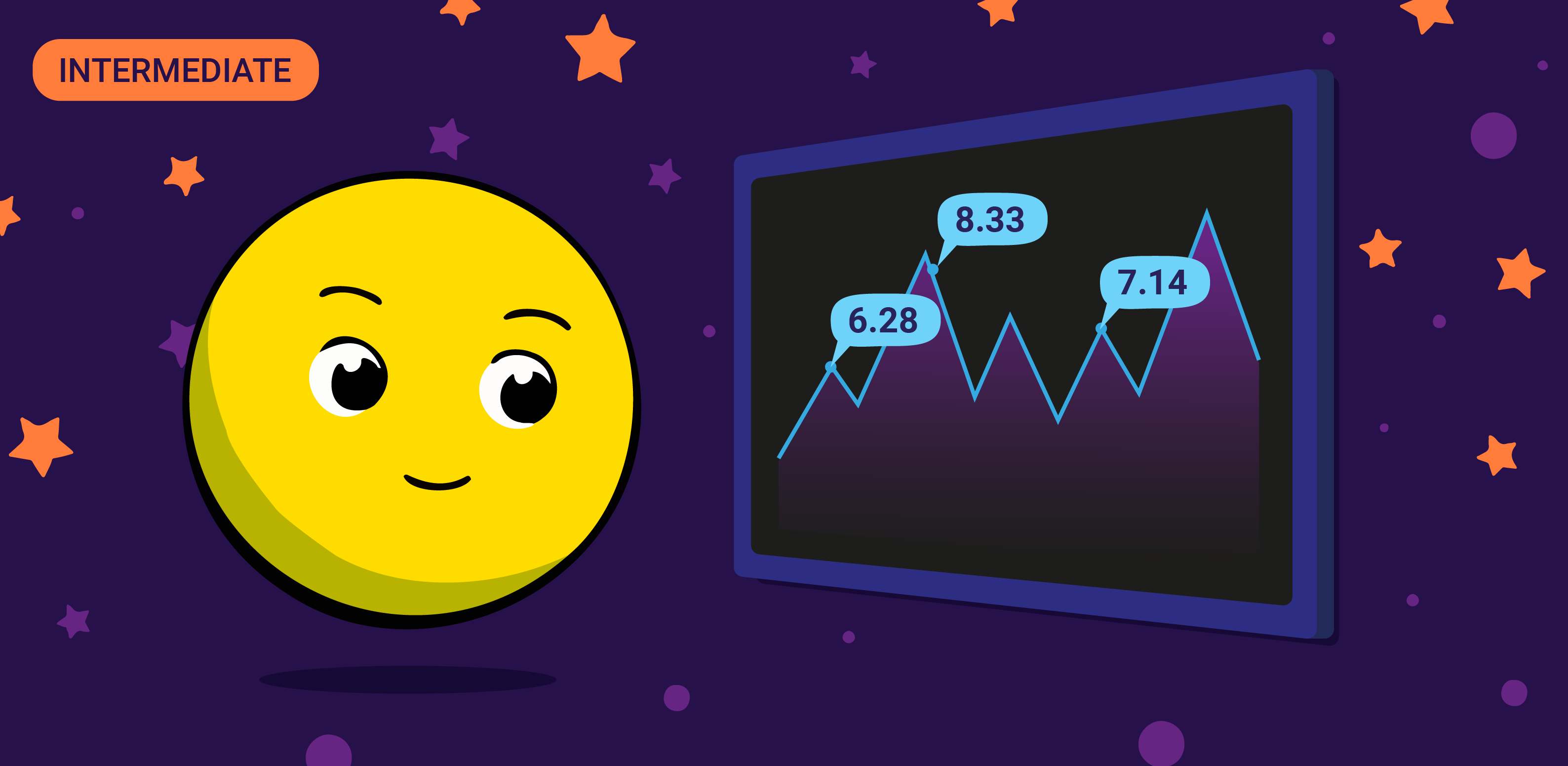
Blockchain oracles are algorithms that serve as a data channel between a smart contract and a source outside the network in which it is deployed.
Oracle technology is widely used by decentralized applications in areas such as DeFi, GameFi, insurance, NFT, and others.
The largest provider of blockchain oracles is Chainlink. Band Protocol, Berry Data, Kylin Protocol, DIA, and other projects also work in this segment.
What Problem Are Blockchain Oracles Solving?
Most operations in decentralized applications are done through smart contracts. To work, they may need a variety of data from external sources: for example, to calculate the exact price ratio of one cryptocurrency to another during an exchange.
Data from external sources - in particular, from platforms aggregating data on trades and prices from many exchanges - allow you to calculate the most "fair" price, which is as close to the market as possible.
However, a smart contract is unable to obtain information outside the blockchain in which it is deployed. It is here that oracles come to the rescue, performing a mediating function between the contract and the data source it needs.
Blockchain oracles are algorithms that usually work based on a certain blockchain.
What Kinds Of Blockchain Oracles Are There?
Oracles can be divided according to various criteria: the principle of work, the sources of the data received and their direction, as well as the form of organization. Below are the most popular types.
Software and Hardware
The former type takes data from digital sources: databases, servers, and cloud storage, and broadcasts it to the addressee in real time. Hardware oracles collect data using physical devices: smart sensors, chips, barcode scanners, RFID tags, and so on.
Inbound and Outbound
Oracles can have a specific specialization - either the transfer of information or its reception from external sources. This may be necessary to improve reliability and address the single point of failure.
Centralized and Decentralized
A centralized oracle is controlled by a single operator, who usually uses it in a particular application. This type of oracle appeared first; however, due to problems with the vulnerabilities of such a system, the crypto industry gradually switched to the standard of decentralized blockchain oracle. These are systems that combine many oracles, each oracle of which performs its own "section" of the request. The first project to implement the principle of a decentralized blockchain oracle was Chainlink oracle.
Contract-Oriented
An expensive and time-consuming type in which an individual oracle serves a specific smart contract. If you need to deploy several smart contracts, then you need to develop an equal number of oracles.
Crosschain-Compatible
Services designed to transfer data between different blockchain platforms. They solve the problem of the incompatibility of networks with each other. Can be useful for decentralized applications using cross-chain operations, for example, transferring one crypto asset to another.
Computing
Special oracles, the task of which is to produce resource-intensive calculations that are impractical to perform in the blockchain due to technical and financial restrictions.
Where Are The Blockchain Oracles Used?
Today, oracles in the crypto industry are used to transmit data flows, in particular price feeds. The latter is a table with a list of price values for different dates and their source. Feeds allow smart contracts to receive cryptocurrency quotes from centralized trading platforms and trading aggregators.
For example, in a project for blockchain oracles called Band as of June 2022, reference prices for 75 cryptocurrencies are supported, and each of them has its own set of sources. For example, the price of Cosmos (ATOM) is obtained by aggregating quotes from CoinGecko, CryptoCompare, CoinMarketCap, Binance, Huobi Pro, and Coinbase Pro.
Oracle technology is used in stablecoins. One example is Ampleforth. The price of a stable AMPL coin is supported by the Rebase model. To keep the peg to the dollar at a ratio of 1:1, the number of stablecoins in holders' wallets is constantly changing in proportion to the market price of AMPL.
To do this, Chainlink oracles supply the Ampleforth protocol with aggregated data on the price of the AMPL/USD trading pair from several aggregators. In addition, oracles also transmit to the protocol the current value of the consumer price index in the United States, obtained from official sources, which allows US inflation to be taken into account in rebalancing.
Data sources are not limited to crypto-related applications. Depending on the purpose of the program where they are used, oracles can be connected to a source that provides, for example, weather statistics or a consumer price index in a particular country.
What Other Functions Does Blockchain Oracle Have?
Oracles can not only provide quotes. In Chainlink, it is possible to obtain a function for verifiable randomness (VRF) in application contracts where the random result is important, for example in blockchain games.
The Polychain Monsters project uses the VRF method to determine the contents of the booths, as well as to randomize the properties of the NFT token and select the winner for airdrops.
Also, games use VRF to create exciting and unpredictable gameplay, in particular, to randomly select the properties of game characters. In Aavegotchi, a user collects valuable crystals on a game card and participates in various mini-games using "NFT ghosts" (Aavegotchi). When a participant receives Aavegotchi at the beginning of the game, he is assigned a random level using VRF.
What Projects Are Developing A Blockchain Oracle?
Chainlink is a recognized leader in the decentralized oracle market. Its ecosystem has more than 1,300 projects in the DeFi, NFT, and Game-Fi sectors. Chainlink does not have its network: the project deploys nodes in different blockchains and applications in which it serves. Chainlink oracles work in Solana, Ethereum, and EVM-compatible networks, including BNB Chain, Arbitrum, Optimism, Polygon, Avalanche, and Fantom.
The Band Protocol, which has approximately 80 integrations, can also be distinguished among oracles. Unlike Chainlink, the project runs on its own blockchain BandChain, created using the Cosmos SDK. Band also develops tools for WebAssembly developers that allow you to create an oracle. BandChain is managed by a network of validators. It works with applications on Celo, Oasis, and Cronos networks. The native coin of the project is BAND.
Other major suppliers of oracles are:
- Berry Data is an oracle system on the BNB Chain network. When you request office data, Berry Data oracle operators compete to transfer data to a special "data bank" (Berry data bank) that is available for all applications on the BNB Chain. In April 2022, there were about 170 integrations.
- DIA (Decentralized Information Asset) is a crosschain-compatible open-source information platform that provides access to validated market data for decentralized applications. The project has its DIA control token.
- Kylin Network is a decentralized oracle and data infrastructure platform for DeFi and Web3 based on the Polkadot Substrate framework.
Blockchain Oracle Deficiencies
The main function of the oracle in the blockchain is to transmit genuine information. Therefore, if the oracle transmits incorrect data, then the smart contract will not work correctly. This may depend, for example, on the source where the oracle takes the information. However, the data may also be distorted by hacker manipulation. Centralized blockchain oracles suffer the most from this.
Another disadvantage of oracles is cost. When sending external data to a smart contract, network resources are consumed. For example, in the Ethereum network, this is gas.
Conclusion
So, with the growing interest in blockchain technology and the need for its integration into the spheres of activity, the need for blockchain oracles increases. Oracles in the blockchain have an important role as an intermediary. Many companies in the market provide such services: Chainlink, Oraclize, and Augur. The number of companies, as well as the need for qualified specialists, will only increase.

